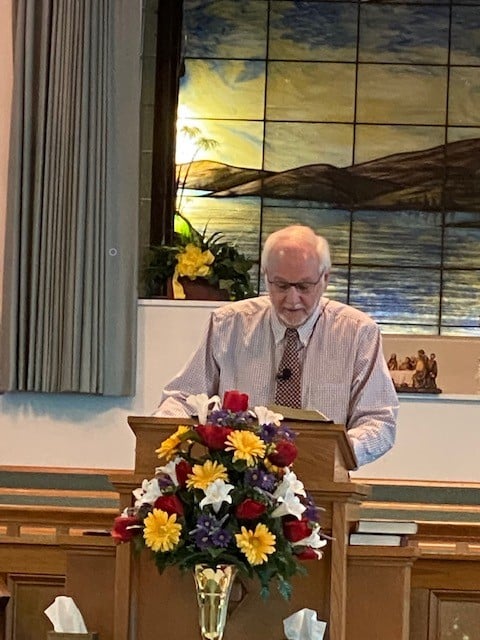October 31 has been celebrated by Bible believers for centuries. You might think it strange that we would celebrate witches and ghouls, and you would be right. What I’m referring to is what happened on this day in the year 1517. It was on that date, in the town of Wittenberg, Germany, that a young monk named Martin Luther nailed to the door of the church in Wittenberg his 95 theses, or questions he wanted to debate with the Catholic leadership over what he considered questionable practices that didn’t line up with Scripture. The nailing of the 95 theses has been hailed for centuries as the lynchpin for the Protestant Reformation, and indeed it was.
The beginning of Luther’s rejection of Catholic doctrine came about because of his paranoia over the fact that, because of his sin, he lived in constant anxiety that he would die and end up in hell, or at least would have to spend a long time in purgatory to work off the sins he hadn’t confessed (to a Priest), or didn’t know about.
Because of this anxiety, he wound up entering a monastery. Looking for answers, Luther began studying the Scriptures. Catholic Soteriology (the doctrine of salvation) taught that one was saved through a series of 7 Sacraments, administered by the Priest. According to this teaching, at the giving of the Sacraments, grace was extended to God’s people. This sacramental grace provides supernatural power that, if received and worked into our lives will result in increased morality (Christ likeness). This continues until, at some point, unknown to us, we become righteous enough so that God declares us worthy of salvation. In other words, it’s salvation by works. As Luther studied Romans, the Holy Spirit opened his eyes to where he saw that salvation is the gift of God; that it is not earned but is a gift given to those who believe.
But this is not what lit the fuse for the Reformation. The 95 theses came about over Luther’s questioning the Pope’s issuing of ‘indulgences.’ An indulgence was legal document issued by the Pope that was supposed to ensure that, upon some great act (in this case, giving money to build St. Peter’s Basilica in Rome), your sins were forgiven. In fact, as I understand it, if you gave enough, even your loved ones in purgatory would be released to enter heaven. Luther protested this, saying that only Jesus (not the Pope) had authority to forgive sins.
Eventually, Luther was summoned to appear at the Diet of Worms before Catholic Archbishops and bishops as well as the King of Spain to answer a charge of heresy for his teachings. He had been promised safe conduct by the authorities, but so had Jan Hus on a similar charge a century earlier, and he was burned at the stake. Once there, it was demanded that Luther recant his views, or else. Knowing what that could mean, Luther asked for a night to pray over it. This was his response, the next day, to the council: ‘Unless I’m convinced by Scripture and plain reason, I do not accept the authority of Popes and councils, my conscience is captive to the word of God. I cannot recant anything, for to go against conscience is neither right nor safe. Here I stand. I cannot do otherwise. God help me. Amen.’
Through God’s providence, Martin Luther was delivered from their hands and the Protestant Reformation ignited. The basics of all that we believe today took hold in Europe; that we are saved by Christ alone, through faith alone, by grace along, as taught by the Scripture alone and for the glory of God alone. It would behoove the church today to go back and study what those men went through to give us the Scriptures that we have in our hands and why it was so important to them and to us. Let me be the first to wish you all a ‘Happy Reformation Day’ for this coming Monday. Amen!
For God’s glory and His alone,
Pastor Terry.


